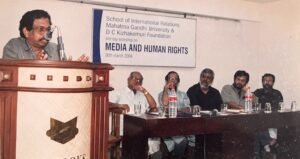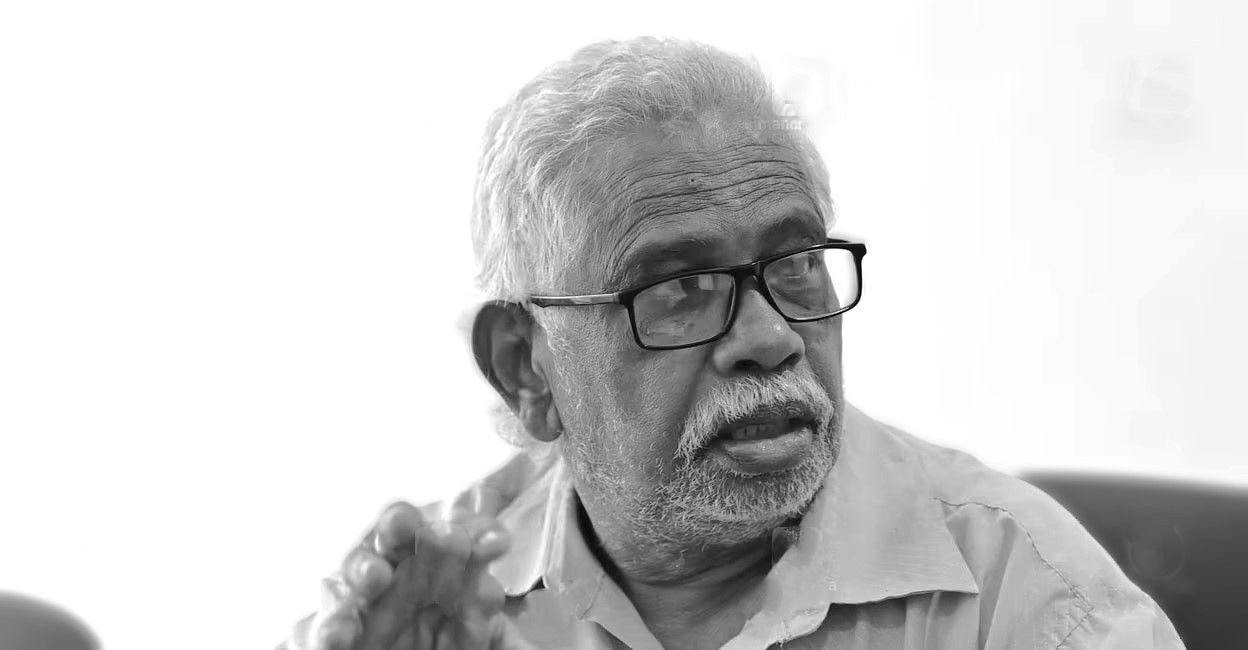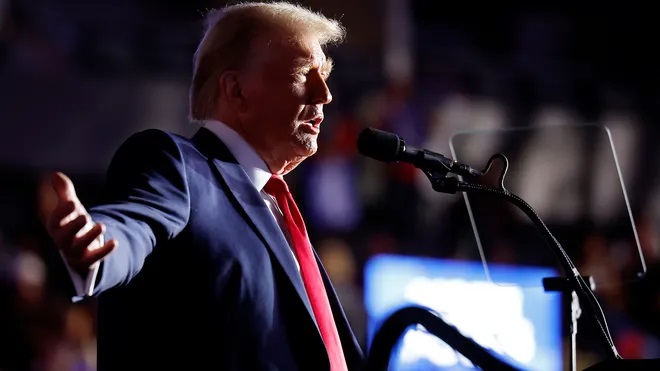First published in Eurasia Review
In the discourses of human development, the late M. Kunhaman, an esteemed economist and subaltern thinker, argued that human development is not just desirable but an indispensable prerequisite for safeguarding human rights. He emphatically argued that the deprivation of opportunities for human development inherently corresponds to the denial of fundamental human rights. This reality is starkly exemplified in the systematic deprivation faced by marginalized groups in India, including Dalits, Adivasis, and women—a thoughtful observation made by Professor Kunhaman.
On this significant International Human Rights Day, we pay tribute to Professor Kunhaman for an expressive reason. His demise, just a day before his 74th birthday in the capital city of Kerala, left a deep impact that resonates with distress and sadness. Kunhaman’s life stands as a testament to his remarkable dedication to championing the dignity and rights of subaltern communities in the country.

Human Rights Workshop at MGU – M Kunhaman speaks. BRP Bhaskar, Rajan Gurukkal, N Madhavan Kutty, CR Bijoy and KM Seethi on the panel
Kunhaman’s intellectual life spanned over four decades in the realms of both academia and the public sphere. With his last teaching career at the Tata Institute of Social Sciences (TISS), Mumbai, and earlier at the Department of Economics, University of Kerala, he established his standing as a distinguished public intellectual in the country. Significant for his critique of mainstream development discourses, including contemporary left politics, Kunhaman consistently advocated for the rights of deprived and marginalised sections of society, surpassing the fervour of many of his contemporaries. His life’s work grappled with questions of marginality and subalternity from a compelling vantage point.
A profound chapter of Kunhaman’s life unfolds in his autobiography Ethiru (Defiance) published in 2020. This autobiographical work serves as a rich compendium, offering penetrating insights into the multitude of experiences – of caste discrimination and oppression that he confronted throughout his life.
When the Kerala Sahitya Academy decided to honour him with an award for his autobiography in 2021, Kunhaman gracefully declined, emphasizing that he did not write for the sake of “the allure of awards.” Instead, he urged the subaltern communities to transcend such temptations. In his autobiography, he asked Dalits to carve out moments for contemplation and reading. Expressing his aspiration for a life distinct from his father’s laborious toil, he sought the luxury of time for thoughtful reflection and reading. He eloquently articulated, “Without the luxury of time for contemplation, how can we nurture individuals with elevated thoughts?”
Hailing from the Palakkad district of Kerala, Kunhaman was born in 1949 and established himself through academic excellence. He secured the first rank in his Master’s degree in economics, becoming only the second student from the Dalit community in Kerala to achieve this feat, after former Indian President K.R. Narayanan. Building on this success, he pursued his MPhil at the Centre for Development Studies (CDS) and earned a PhD from Cochin University of Science and Technology. His career unfolded with a long tenure at the University of Kerala, where he taught from 1979 to 2006. Subsequently, he joined the Tata Institute of Social Sciences Tuljapur campus, dedicating nearly nine years to furthering his contributions to academia as a professor.
Kunhaman’s intellectual legacy is marked by significant contributions, including notable works such as Development of Tribal Economy, State Level Planning in India, and Globalisation: A Subaltern Perspective. Beyond these impactful publications, he further enriched scholarly discussions through insightful essays, featuring the depth and breadth of his influence on intellectual discourse.
While ardently fighting for the subalterns, it may be recalled, Kunhaman maintained a critical stance toward Dalit studies. He expressed scepticism about the field, pointing out its susceptibility to epistemological stagnation. He criticized the tendency within Dalit studies to approach dynamic questions within a static framework, divorcing analytical focus from empirical processes and neglecting the imperative for praxis. According to Kunhaman, these limitations contributed to restricted perceptions among writers and activists, ultimately leading to distorted perspectives among policymakers. Kunhaman noted a decline in the revolutionary zeal of Dalit activism from the 1980s, characterizing it as more reactive than proactive. Moreover, he highlighted a paradoxical situation where the caste system seemed to be weakening, yet the influence of caste continued to strengthen. This nuanced perspective underlined his commitment to a deeper understanding of the complexities within the discourse on Dalit issues.
In elucidating the significance of subaltern economics, which acknowledges the distinctive economic behaviours of marginalized or discriminated social groups, Kunhaman contended that a considerable segment of human society operates outside the confines of the perfectly competitive market economy. This is particularly evident in Adivasi and peasant societies, where the economizing and maximizing behaviour characteristic of capitalist societies is either absent or of minimal importance.
While acknowledging the commendable contributions of writers in the new tradition who have formulated a theory of underdevelopment, Kunhaman critiqued the dependency theory. He brought attention to a significant drawback involving circular reasoning, where underdevelopment is ascribed to dependence, and dependence is perceived as the outcome of underdevelopment. Moreover, he pointed out that the dependency theory oversimplifies by portraying advanced countries as exploiters and underdeveloped ones as exploited, disregarding the internal class structures within both categories. Kunhaman emphasized the existence of exploitative dynamics within advanced countries and a privileged class within underdeveloped ones. Expressing concern over economists neglecting the study of subaltern groups, he attributed this oversight to their conventional economic training. Kunhaman underscored the crucial importance of recognizing and addressing the challenges faced by subaltern groups to foster a more comprehensive understanding of economic dynamics.
Kunhaman’s lectures, delivered across both academic and public arenas, consistently captivated diverse audiences with their insightful discourse. When discussing the complex subject of globalization, he boldly asserted that, while it might offer extensive opportunities for a privileged minority armed with abundant resources—both material and intellectual—it simultaneously heralded a gradual process of impoverishment for the majority in India and the Global South, ultimately culminating in their obliteration.
In analysing the impact of neoliberal economic policies, Kunhaman contended that these approaches had transformed into formidable obstacles for the impoverished. He brought in the discussion of poverty, advocating against its narrow definition as a mere shortage of food grains per capita. Instead, he championed a more comprehensive perspective, positioning poverty as a pivotal issue around which various challenges, including illiteracy, poor health, inadequate housing, and lack of access to safe drinking water, converged. In doing so, Kunhaman aimed to stress the complex and interconnected nature of poverty, shedding light on its multifaceted dimensions and far-reaching consequences for marginalized communities.
Kunhaman emphasised the critical role of economic changes as a catalyst for substantive social transformation. He argued that a socially stratified society mirrors a stratified economic order, emphasizing that authentic social progress depends on eradicating economic disparities. While policy interventions may instigate certain social changes, he contended that genuine equality remains elusive until the underlying conflicts within the economic system are comprehensively addressed. Drawing attention to Kerala’s development experience critically, he presented it as a significant case study, illustrating the complex relationship between economic and social change.
Kunhaman also critically examined the implementation of land reforms, arguing that post-independence reforms predominantly concentrated on granting ownership rights to tenants. He observed that this shift led to the conversion of many tenants into capitalist farmers, aligning themselves with regional political parties and attaining significant political influence in various states. The impact on landowners, he noted, was relatively minimal, with only a few experiencing proletarianization due to land loss, and opportunities for Dalits to become landowners remained scarce.
Even in the case of Kerala, celebrated for its ‘radical’ land reforms, Kunhaman contended that there has been no substantial change in the class position of Dalits resulting from these reforms. His analysis focussed on the intricate and often uneven outcomes of land reform initiatives in the Indian landscape, emphasizing the need for a more inclusive approach to address the complexities of agrarian transformation.
During Kunhaman’s research at the Centre for Development Studies, he actively participated in intense intellectual exchanges with eminent scholars, including K.N. Raj, I.S. Gulati, Vaidyanathan, and others. His intellectual encounters also extended to figures such as E.M.S. Namboodiripad and P.G. Govinda Pillai. Reflecting on his experiences, Kunhaman wrote about the distinctive mindset of E.M.S. Namboodiripad. Remarkably, despite his Brahminic heritage, Namboodiripad embraced the idea of viewing Dalits as equals. Kunhaman emphasized Namboodiripad’s openness, exemplified by the leader’s genuine interest in visiting Dalit huts. There, Namboodiripad would comfortably sit on the cow-dung paste-covered floor, symbolizing a departure from traditional norms. Despite Kunhaman’s active participation in meetings led by Namboodiripad, which often included critiques of Marxist political theory, Namboodiripad consistently displayed a remarkable absence of intolerance, creating an environment conducive to constructive discourse.
Kunhaman consistently voiced his concerns regarding the evolving landscape of higher education, particularly the shift from resource-based to knowledge-driven development. He critically observed the transformation of education into a commodity, expressing worry about the commercialization of knowledge. This trend, he argued, fostered a market-oriented perspective where the provision of education was increasingly influenced by profit-driven entrepreneurs and investors rather than educators.
In emphasizing the crucial role of knowledge in development, Kunhaman stressed the need to pay equal attention to the social structures involved in its generation, collation, value addition, diffusion, and application. He argued against a depoliticized discourse on knowledge, drawing attention to its potential social harm and strategic deficiencies. He often reiterated, “We need to create not the best talents, but different talents,” urging a shift in focus from conventional norms to a more diverse and inclusive approach to nurturing talents within the educational realm.
Despite his open and consistent criticism of mainstream left parties, Kunhaman, at times, maintained a positive attitude by readily acknowledging progressive initiatives undertaken by left governments. He particularly recognized the substantial potential in the People’s Planning and decentralization introduced by the left government in 1996. Simultaneously, he did not hesitate to articulate his critiques of certain development projects initiated by the government that fell short of addressing the broader social ecosystem of the state. Kunhaman’s critical approach reflected both his astute evaluation of governmental actions and his commitment to constructive critique even within political frameworks he was critical of.
In the final years of his life, Kunhaman extended his intellectual reach by delivering lectures in wider circles. His most recent appointment was as the Nelson Mandela Chair Professor at Mahatma Gandhi University in 2021-22. Despite his notable lack of inhibition, pretension, or grand ambitions, distinguishing him from conventional positions and institutions, those nearby sensed a lingering melancholy. This subtle undercurrent of sadness in Kunhaman’s character was likely a result of his internalization of various forms of marginality in real life, shaping them into excruciating agonies that remained undisclosed to many until he shared his experiences in his autobiography.
Then, many asked this question, why did he decide to end his life amid all commitments?
Addressing a spate of Dalit suicides in prestigious institutions like IITs in India, Suraj Yengde, a scholar at Harvard Kennedy School, asserted in Caste Matters that these suicides represent a form of social lynching. He underscored how these tragic incidents underscore the heightened vulnerabilities faced by Dalits, revealing a systemic failure to address their concerns adequately. Yengde contextualized these suicides within the historical pattern of Dalits experiencing violence sanctioned by the social hierarchy of dominant-caste society.
In an interview with Francis Wade, Gayatri Chakravarty Spivak delved into the pervasive violence, exploitation, and oppression endured by marginalized communities over the years. Spivak noted that individuals subjected to such conditions often reach a point where they lose the fear of death, creating a unique and unsettling circumstance. Frantz Fanon also noted that the denial of fundamental equality, a defining aspect of our humanity, can lead to extreme violence. This denial results in a state where individuals are no longer afraid of death, providing the subaltern with a means to convey their struggles through the act of dying.
Kunhaman’s unexpected demise left a distressing question hanging in the air, without a definitive answer: Did his choice to end his own life convey a message to a society contending with the enduring complexities of caste-based and other oppressive systems?
Unfortunately, the pervasive oppression and marginalization that marked Kunhaman’s life largely went unaddressed by many, showing the silent struggles he faced throughout his lifetime.





Prof Seethi has done a commendable work coverting an assessment of Prof M Kunhaman’s academic contributions into an equally challenging larger and deeper discourse involving experts such as Fanon, Spivak and others.
Professor Kunhaman would have won national and international acclaim had he been after positions. He never used his cultural capital for any personal gains. Kunhaman was equally critical of Dalits getting into petty squabbles, without indulging in any serious thoughts. Good that this has come at a time when all media are only interested in highlighting his own experiences of deprivations, and stories of caste discrimination. Much of his serious writings and perspectives need to be brought to light for the new generation to ponder over. His insights into contemporary tribal studies, for example, need wider consideration.